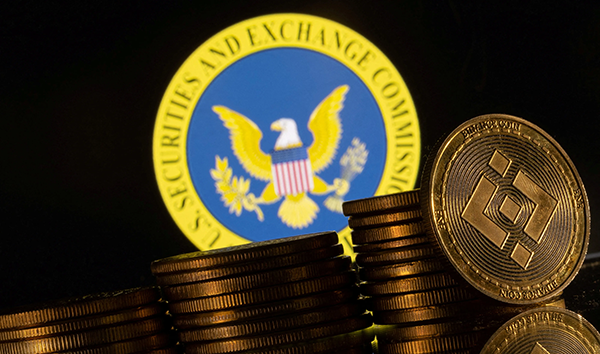
Cryptocurrency has always been seen with suspicion by individuals, companies and governments. But as it developed and Bitcoin became a thing, businesses gave it a chance as the number of investors grew considerably a few years after its market release. Now, worldwide acceptance is primarily discussed, but only one country made it legal tender and tried embracing the ways of cryptocurrency as an alternative to a broken financial system.
More people are learning how to buy Bitcoin on Binance because they need to expand their portfolios and start off with a secure asset. However, to truly minimize the risk of volatility, one needs to learn the ways of diversification and invest in different crypto coins to increase their value. Unfortunately, this is what governments fear, the enlargement of the crypto sector in an unregulated environment.
Still, the US Securities and Exchange Commission (SEC) is set on following cryptocurrency until the end of time.
Table of Contents
John Reed Stark warns that SEC will always keep an eye on crypto
John Reed Stark was chief of the SEC Office of Internet Enforcement and an attorney for over 20 years. Currently, he’s president of a cybersecurity firm that he founded, John Reed Stark Consulting. Considering his history and position, it’s safe to say that he’s a trustworthy figure in the financial background of America, for which many have taken his opinion as necessary regarding the latest issue, cryptocurrency.
That’s why he made a post related to the latest events of the SEC being pushed to accept Bitcoin’s ETFs and further regulate digital coins into being legal and seen as regular assets. He discussed the matter of exchanges that want to become more powerful, for which they have to provide trust, oversight and consumer protection. He considers this to be impossible because the risks of such markets can develop into unlawful situations.
Stark emphasized SEC’s mission to ensure fair and efficient markets for consumers, for which the authority will never cease its efforts. He also accentuated the SEC’s influence on the need for registration for all crypto platforms considering all coins are securities, except Bitcoin, which is a commodity.
The never-ending discussion on security vs commodity
The main reason why it’s so difficult to categorize digital assets is that differentiating them between securities and commodities is not that easy. It took experts some time to decide on Bitcoin’s commodity status simply because it seems to operate like one. All coins are identical, so Bitcoin is interchangeable, and its price is triggered by supply and demand without the influence of a central point.
However, things are more complex with other cryptocurrencies because although all are considered securities, a recent analysis from a court ruling stated that XRP, Bitcoin’s competitor, is actually not a security since its programmatic sales and non-security features are separate issues to deal with. There’s also a problem with SEC winning on the appeal of sales because if they succeed, XRP won’t be able to be listed on crypto exchanges, leading to its imminent downfall. The long-going process proved to be a real hassle for the coin and the community also because it may be the start of an end to crypto.
The US is about to change the cryptocurrency framework forever
There are many views on the utility of crypto in the US, which is the most potent investment base for these digital assets. Especially now, amid the presidential campaign, many candidates have chosen to promote Bitcoin and promise that after becoming the next US president, the asset will be more regulated and accepted around the American markets.
On the other hand, Biden and Trump were less affected by the crypto fever and concluded they’ve no real value for the US. Considering these two candidates are ruling the presidential election for 2024, it’s most likely that citizens will have similar views on Bitcoin and other cryptocurrencies.
At the same time, SEC is set on ensuring customers are safe, which is also why they’ve pushed legislation to impose the immediate need for exchanges to get registered as the only way to continue operating. The problem is that the registration requirements are a hassle to these exchanges and drive a lot of confusion about what clearly needs to be done to get registered.
For an exchange to be genuinely regulated, many aspects must be addressed that even the SEC hasn’t adequately handled. The crypto sector is so vast and complex that only experts in the domain would understand how staking works, for example, or how the effects of centralization on a decentralized system would affect the quality of crypto.
Crypto investors and the power of believing
Crypto investors have happily worked with cryptocurrencies until the SEC arrived to impose regulation. Although this legal effort can make investing and trading safer and more efficient, entering a field where things are difficult to sort out will only confuse people more.
For example, as the SEC continues its battle with XRP, investors are trying to save the cryptocurrency by buying coins, which is why its price surged quickly. While market sentiment improved considerably after this event, it’s less likely that the judges assessed to make the final decision will be impressed by the crypto community.
Investors believe that regulation is done by enforcement rather than setting up concise rules through which crypto companies and traditional finance can work together for clients to receive better services. That’s because the lack of knowledge and increased suspicion about digital coins’ reliability spread to these authorities, who have not given them a chance. Unfortunately, this hinders the expansion of crypto markets and doesn’t allow investors to use their assets freely.
Final considerations
SEC is one of the most powerful institutions in the US and is currently making significant efforts to get crypto off the market if it doesn’t respect specific conditions. However, this said market regulations aren’t clearly explained, but what’s for sure is that exchanges need to get registered to continue functioning otherwise.

